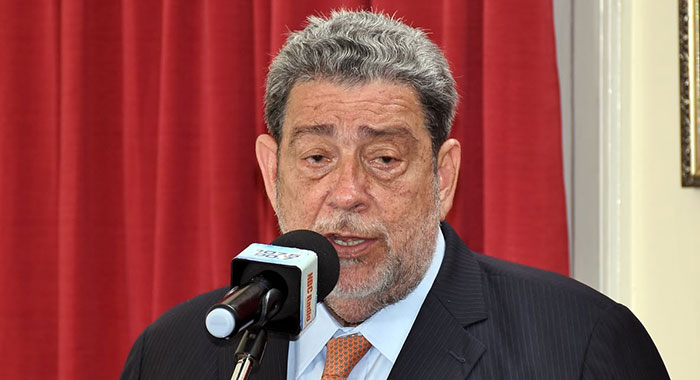The grade that the Government of St. Vincent and the Grenadines has given itself for its handling of COVID-19 pandemic has moved, over two weeks, from “fabulously well” to reasonably well.
On Dec. 28, as Minister of Finance Camillo Gonsalves commented on the Unity Labour Party administration’s handling of the pandemic, he noted that the country was among 14 independent countries in the world that were yet to experience a death as a result of the pandemic.
“And of those 14 countries, St. Vincent and the Grenadines is sixth in the entire world in terms of economic contraction,” he further told Parliament.
However, that same day, the country began recording an increasing number of cases among residents without recent travel history.
To date, that number has risen to 124 cases and health officials have not used the term “community spread”, saying that they have identified five different clusters.
And, on Sunday, Prime Minister Ralph Gonsalves, speaking on WE FM’s “Issue At Hand” said that the government and people of the country had handled the pandemic “reasonably well”.
His comment came as he responded to “those persons who say flippantly they don’t think that the government has a plan”.
Gonsalves said that since April he had spoken about the nation’s health multi-hazard plan, and the infectious disease plan, which was updated in April to include the COVID plan.
The prime minister said that his government is refining and reviewing these plans on an ongoing basis because of the changing nature of the COVID-19 pandemic.
“… and there is nothing self-congratulatory that, thus far, the government and people of St. Vincent and the Grenadines have handled the pandemic reasonably well…”
The prime minister was speaking three days after the opposition New Democratic Party said that the government was not taking “a proactive approach in the management of COVID- 19 and appears to have no effective plan to comprehensively address this crisis”.
The party called on the government to outline its plan, if it has any, for the use of the COVID-19 vaccine in SVG.
“Despite all we have learned about the management of the coronavirus over time, it is clear that the situation regarding the coronavirus in SVG is worse today than it has ever been. It is, therefore, premature and grossly misleading for the Prime Minister or any other member of the Government to speak in self-congratulatory terms about the management of the pandemic.”
But Gonsalves, on Sunday, again noted that SVG had not recorded any COVID-19 deaths.
“… it is a fact that though the numbers are spiking — and I knock wood everything I say, what I am about to say — we haven’t had any deaths arising from COVID and we haven’t had people taken so ill that they are hospitalised for prolonged periods and time…”
Gonsalves further noted that SVG is one of 13 independent countries in the world that were yet to record a COVID-19-related death.
“… and we must let it remain so and we haven’t had serious illness. People with pre-existing conditions have had difficulties. For instance, I know a case of somebody who had sickle cell anaemia, somebody who had a heart problem, people who are elderly and have diabetes or hypertension, things like these and we have been coping with them but it means that we have to be very responsible and follow all the protocols as laid out by the health services sub-committee of NEMO.”
On Tuesday, the National Emergency Management Organisation (NEMO) announced that six persons were hospitalised as a result of COVID-19 and that two of them were seriously ill.
In his call to WE FM on Sunday, Gonsalves said that everyone could see that Chief Medical Officer, Simone Keizer-Beache and her team “are doing pretty good work and the population is responding … and everybody can see that is what is happening.
“And from the very beginning, we haven’t been in the camp to panic, we haven’t been in the lockdown mode, we ramp up where we have to ramp up,” he said.
The prime minister noted that persons were calling for the wearing of face masks in public to be made mandatory.
He, however, said his government prefers to use persuasion and public education rather than the law to move the population in that direction.






